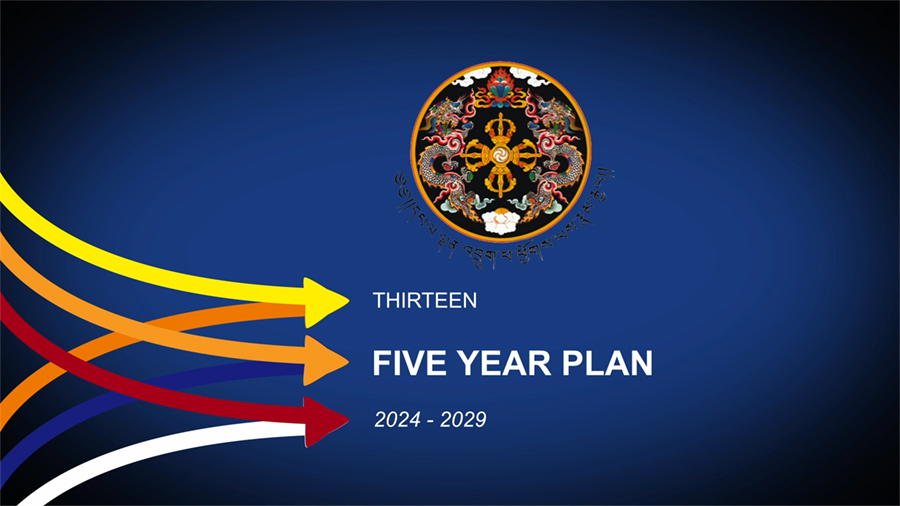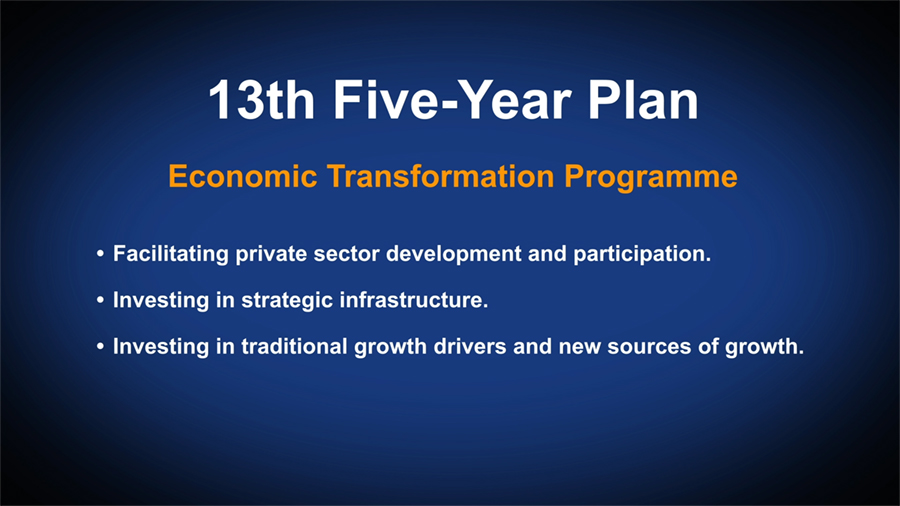
The 13th Five-Year Plan aims to double the country’s GDP to USD 5bn by 2029. To achieve this ambitious target, one of the major programme in the 13th plan is the Economic Transformation Programme. Government ministries and agencies will implement over 70 projects worth Nu 80bn. The finance minister presented the 13th Five-Year Plan to both houses of the Parliament on Thursday and Friday.

The Economic Transformation Programme aims to foster sustainable and inclusive economic growth by facilitating private sector development and participation, investing in strategic infrastructure, and investing in traditional growth drivers and new sources of growth.
According to the plan document, the government will shift towards a ‘government-facilitated and private sector-led’ economic model in the country.
The plan states that State-Owned Enterprises that can be operated efficiently by the private sector will see gradual privatisation.
For investments in strategic infrastructure, the programme will enhance roads, bridges, airports, and railways in the southern region.
Infrastructure transformation for economic growth also includes setting up dry ports, accelerating industrial park construction, and creating of the National Capital Region spanning across Thimphu and Paro. Several urban centres will also be linked.
One of the 13th plan’s ambitions is to boost agriculture and livestock sector’s contribution to GDP.
The programme will focus on enhancing food security, increasing farmers’ income. This, according to the plan document, will be pursued through establishment and expansion of large-scale commercial farming among others.
The plan will continue to prioritise tourism as a significant economic driver by enhancing visitor experience, promoting sustainable practices, and diversifying tourism products to attract 300,000 tourists annually.
Focus will also be on accelerating investments in hydropower projects to boost energy security including the completion of ongoing projects and initiation of new ones like Nyera Amari and Kholongchu.
Moreover, the programme will develop alternative renewable energy to enhance energy security and reduce dependence on conventional sources.
Additionally, to increase mining sector’s contribution to national development, the 13th plan will see expansion of geological and mineral resource mapping in the country. Graphite deposits will be developed and minerals will be value added to enhance export. Investments will also be made in manufacturing and construction sectors.
One of the ambitious plans in the programme is to develop the digital and creative economy into a major economic sector.
According to government plans, key initiatives include establishing a global e-commerce platform, engaging digital and creative entrepreneurs, and protecting innovative works, including traditional arts and crafts.
Significant investments will be made in infrastructure, such as nationwide theatres and state-of-the-art film and art studios, alongside supporting skills development in various creative fields.
The GovTech Agency will lead a Digital Transformation Programme to enhance digital infrastructure, ensuring reliable, high-speed, and low-cost Internet nationwide, while establishing three new data centres to export services. Additionally, new monetisation options, including payment gateways and digital currency, will be introduced.
Sonam Yuden
Edited by Sherub Dorji








